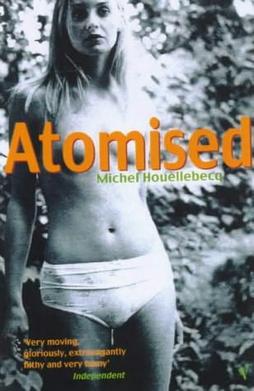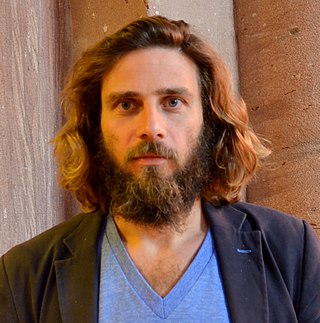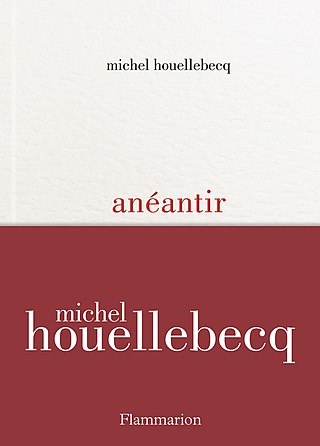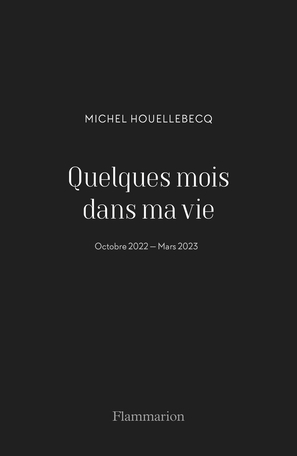| English title | Original title | First published | I | I2 | I2020 | Notes |
|---|
| Date | Publication |
|---|
| "Jacques Prévert is a jerk" | "Jacques Prévert est un con" | July 1992 | Les Lettres Françaises #22 | Yes | Yes | Yes | |
| "The Mirage by Jean-Claude Guiguet" | "Le Mirage de Jean-Claude Guiduet" | December 1992 | Les Lettres Françaises #27 | Yes | Yes | Yes | |
| "Approaches to distress" | "Approches du désarroi" | 1992 | Genius loci | Yes | Yes | Yes | Also in Rester vivant et autres textes, 1999 |
| "Staring into the distance: in praise of silent cinema" | "Le Regard perdu, éloge du cinéma muet" | May 1993 | Les Lettres Françaises #32 | Yes | Yes | Yes | |
| "Interview with Jean-Yves Jounnais and Christophe Duchâtelet" | "Entretien avec Jean-Yves Jounnais et Christophe Duchâtelet" | February 1995 | art press | Yes | Yes | Yes | |
| "Art as peeling" | "L'art comme épluchage" | 1995 | Les Inrockuptibles #5 | Yes | Yes | Yes | |
| "Creative absurdity" | "L'absurdité créatrice" | 1995 | Les Inrockuptibles #13 | Yes | Yes | Yes | |
| lit. 'Interview with Valère Staraselski' | "Entretien avec Valère Staraselski" | 5 July 1996 | L'Humanité | Yes | No | No | |
| "The party" | "La fête" | 1996 | 20 Ans | No | Yes | Yes | Also in Rester vivant et autres textes, 1999 |
| "Time out" | "Temps morts" | February–March 1997 | Les Inrockuptibles #90–97 | Yes | Yes | Yes | Also in Rester vivant et autres textes, 1999 |
| lit. 'Interview with Sabine Audrerie' | "Entretien avec Sabine Audrerie" | April 1997 | Encore #5 | Yes | No | No | |
| "Opera Bianca" | "Opera Bianca" | 1998 | Interventions | Yes | Yes | Yes | Installation at the Centre d'Art Contemporain Georges-Pompidou, 1997 |
| "Letter to Lakis Proguidis" | "Lettre à Lakis Proguidis" | 1997 | L'Atelier du roman #10 | Yes | Yes | Yes | |
| "The question of paedophilia" | "La question pédophile" | 1997 | L'Infini #59 | No | Yes | Yes | |
| "Humanity, the second stage" | "L'Humanité, second stade" | 1998 | SCUM Manifesto | No | Yes | Yes | Afterword to Mille et Une Nuits [ fr ]'s edition of the manifesto by Valerie Solanas |
| "Empty heavens" | "Cieux vides" | 1999 | Rester vivant et autres textes | No | Yes | Yes | |
| "I have a dream" | "Ich habe einen Traum" | 2 November 2000 | Die Zeit | No | Yes | Yes | Interview with Wolfgang Farkas [ de ]; in French translation as "J'ai un rêve" |
| "Neil Young" | "Neil Young" | 2000 | Dictionnaire du rock | No | Yes | Yes | |
| "Interview with Christian Authier" | "Entretien avec Christian Authier" | January 2002 | L'Opinion indépendante | No | Yes | Yes | |
| "Technical consolation" | "Consolation technique" | 2002 | Lanzarote et autres textes | No | Yes | Yes | |
| "Sky, earth, sun" | "Ciel, terre, soleil." | 2002 | Contes de campagne | No | Yes | Yes | Also in Lanzarote et autres textes , 2002 |
| "Leaving the twentieth century" | "Sortir du XXe siècle" | April 2002 | Nouvelle Revue Française #561 | No | Yes | Yes | Also in Lanzarote et autres textes , 2002 |
| "Philippe Muray in 2002" | "Philippe Muray en 2002" | 6 January 2003 | Le Figaro | No | Yes | Yes | Originally titled "L'homme de gauche est mal parti" |
| "Towards a semi-rehabilitation of the hick" | "Vers une semi-réhabilitation du beauf" | 2003 | online | No | Yes | Yes | |
| "Conservatism, a source of progress" | "Le conservatisme, source de progrès " | 8 November 2003 | Le Figaro | No | No | Yes | Also in Houellebecq, Cahiers de l'Herne , 2017 |
| "Prolegomena to positivism" | "Préliminaires au positivisme" | 2003 | Auguste Comte aujourdhui | No | Yes | Yes | Preface to a book by Michel Bourdeau |
| "I'm normal. A normal writer" | "Je suis normal. Écrivain normal." | 2004? | Unknown magazine | No | Yes | Yes | Houellebecq says it first appeared in a magazine but does not remember which one. Also in Des nouvelles du prix de Flore, 2004 |
| lit. 'Interview with Gilles Martin-Chauffier and Jérôme Béglé' | "Entretien avec Gilles Martin-Chauffier et Jérôme Béglé" | October 2006 | Paris Match #3000 | No | Yes | No | |
| "Soil cutting" | "Coupes de sol" | September 2008 | Artforum | No | Yes | Yes | |
| "I have read my whole life long" | "J'ai lu toute ma vie" | 2008 | ? | No | Yes | Yes | Written for the 50th anniversary of the publishing house J'ai lu [ fr ] |
| "The lost text" | "Le texte perdu" | 2012 | L'Imaginaire touristique | No | No | Yes | Preface to a book by Rachid Amirou [ fr ] |
| "Interview with Frédéric Beigbeder" | "Entretien avec Frédéric Beigbeder" | April 2014 | Lui #7 | No | No | Yes | |
| "A remedy for the exhaustion of being" | "Un remède à l'épuisement d'être" | 2014 | Musée national | No | No | Yes | Preface to a book by Marc Lathuillière |
| "Interview with Marin De Viry and Valérie Toranian" | "Entretien avec Marin de Viry et Valérie Toranian" | July 2015 | Revue des deux Mondes | No | No | Yes | |
| "Interview with Agathe Novak-Lechevalier" | "Entretien avec Agathe Novak-Lechevalier" | 2020 | Interventions 2020 | No | No | Yes | The interview took place during La Noche de los Libros [ es ] in Málaga, April 2017 |
| "Emmanuel Carrière and the problem of goodness" | "Emmanuel Carrère et le problème du bien" | 2018 | Emmanuel Carrère. Faire effraction dans le réel | No | No | Yes | |
| "Donald Trump is a good president" | "Donald Trump is a good president" | January 2019 | Harper's Magazine | No | No | Yes | The French title is "Donald Trump est un bon président". |
| "Conversation with Geoffrey Lejeune" | "Conversation avec Geoffroy Lejeune" | May 2019 | First Things | No | No | Yes | Also in Revue des deux Mondes , October 2019 |
| "A bit worse. A response to a few friends" | "En un peu pire." | 4 May 2020 | France Inter | No | No | Yes | Letter read on radio by Augustin Trapenard [ fr ] |
| "The Vincent Lambert affait should not have taken place" | "L'affaire Vincent Lambert n'aurait pas dû avoir lieu" | 2020 | Vincent Lambert, une mort exemplaire? | No | No | Yes | Preface to a book by Emmanuel Hirsch [ fr ] |













